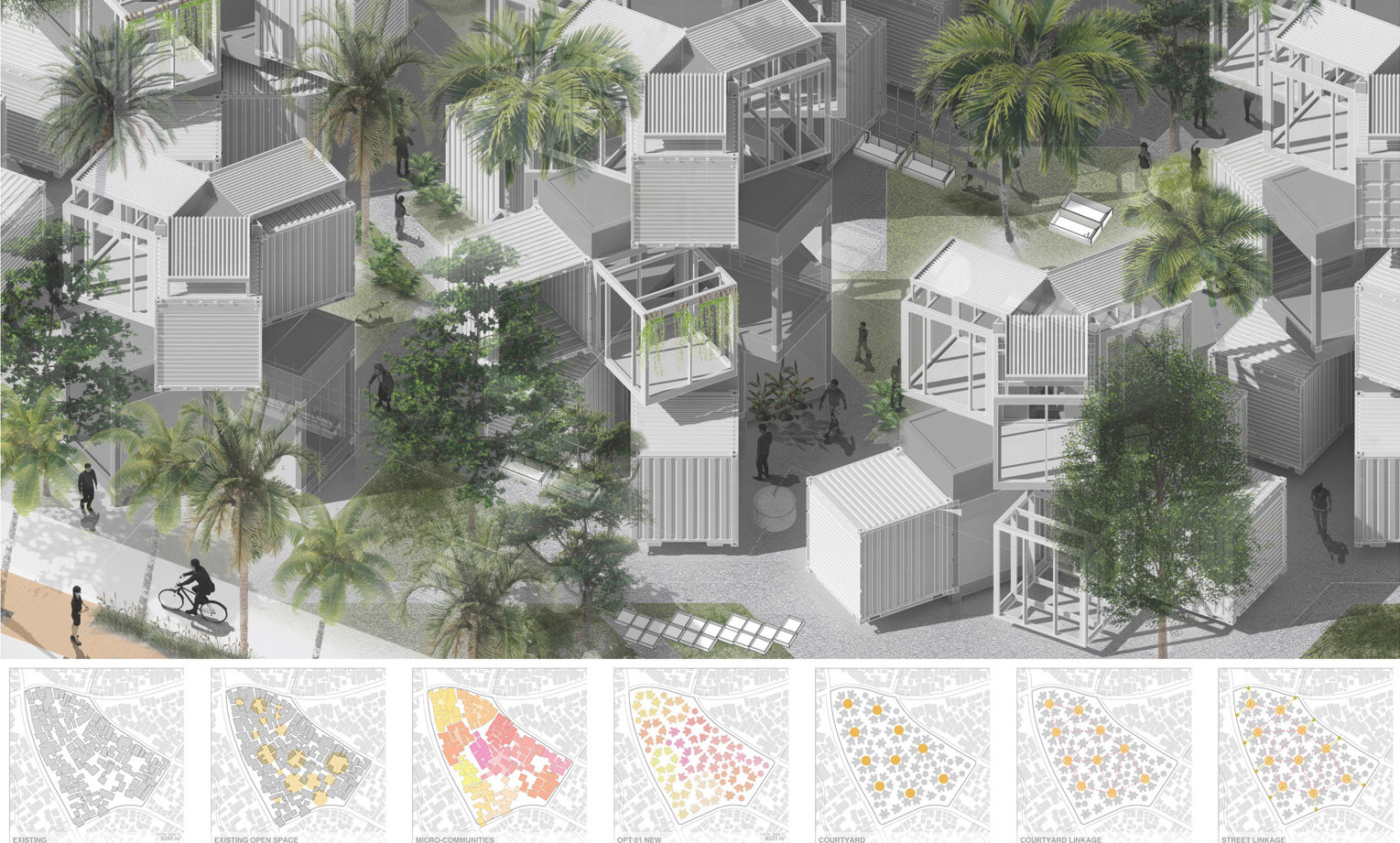Nine Harvard University Graduate School of Design students and recent graduates are among the recipients of 2018 American Society of Landscape Architects (ASLA) Student Awards. Their projects tackle a range of issues, from improving informal settlements in Manila and climate-adaptive residential architecture in Boston, to the role of landscape design in the unification of North and South Korea and ways to convert harmful algal blooms into productive parts of our ecosystem.
The annual ASLA Student Awards recognize student work across seven categories: General Design, Residential Design, Analysis and Planning, Communications, Research, Community Service, and Student Collaboration. Of the four winning projects on which the nine GSD honorees collaborated, two received Awards of Excellence and two received Honor Awards.
Honorees will receive their awards at this year’s ASLA Annual Meeting and EXPO in Philadelphia, taking place October 19 through 22. In addition to the student winners, GSD faculty and alumni will also be honored with ASLA Professional Awards; among others, Mikyoung Kim (MLA ’92), design critic in landscape architecture, will formally receive the 2018 Design Medal, one of the most prestigious honors bestowed upon a landscape architect.
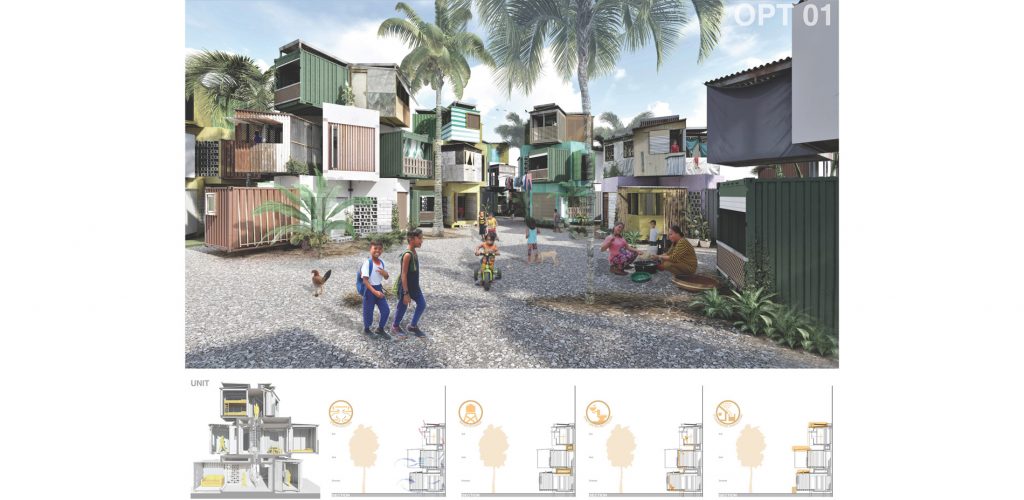
Earning the Student Award of Excellence in the Residential Design Category, “Baseco: A New Housing Paradigm” by Julio F. Torres Santana (MArch ’19), Yinan Liu (MLA ’19), and Aime Vailes-Macarie (MArch ’19) was conceived for the spring 2018 option studio “Manila: Future Habitations.” It focuses on Baseco, an informal settlement in Manila, and includes both immediate and long-term housing solutions for the area, which is home to around 60,000 residents.
“Our proposals connect form with space, interiors with landscape, consider climate, vegetation and sea level rise, and create sustainable ecologically sensitive habitations considering technologies focusing on material reuse,” reads the project statement. Torres Santana, Liu, and Vailes-Macarie were advised by David A. Rubin (MLA ’90), Rok Oman, and Spela Videcnik, and their work appears in the GSD Studio Report: Manila: Future Habitations. Learn more on the ASLA project page.
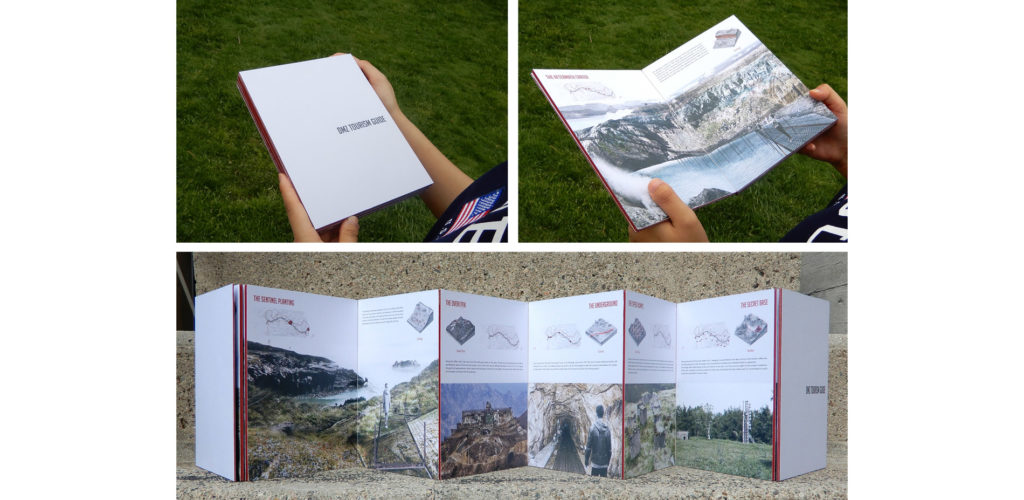
In the ASLA’s Communications Category, “Korea Remade: A Guide to the Reuse of the DMZ Area Towards Unification” by Xiwei Shen (MLA ’19), Jiawen Chen (MLA ’18), and Siyu Jiang (MLA ’18) received top honors, garnering the Student Award of Excellence. Advised by Professor of Landscape Architecture and Technology Niall Kirkwood and Design Critics in Landscape Architecture Jungyoon (Yuni) Kim (MLA ’00) and Yoon-Jin Park (MLA ’00), the project sets out a unification ‘guide book’ that addresses agriculture, tourism, and energy. Each section includes problem analysis, site generation, and design toolkits. Learn more on the ASLA project page, and read about the project in Landscape Architecture Magazine.
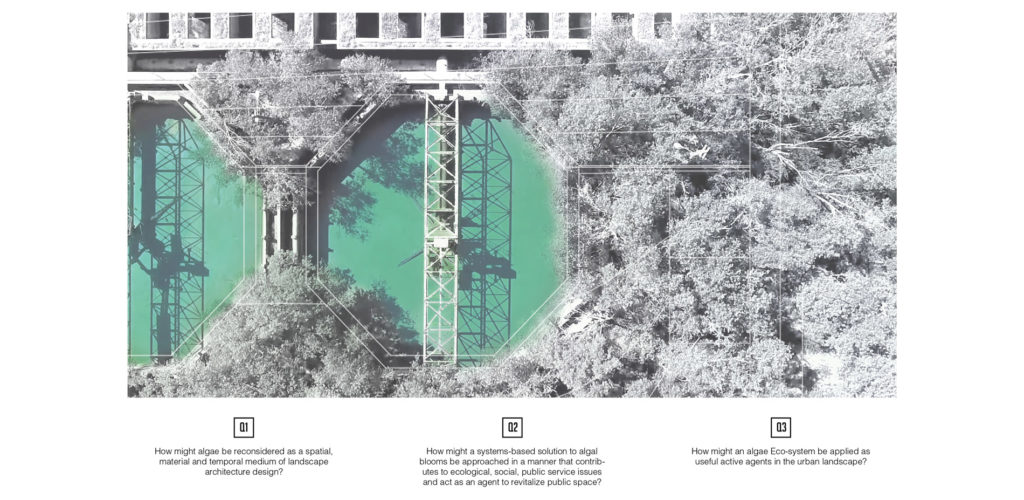
“Bloom! A Dynamic Landscape Biological System” by Xiwei Shen (MLA ’19), Jiawen Chen (MLA ’18), and Chengzhe Zhang (MLA ’19), received a Student Honor Award in the Analysis And Planning Category. The independent-study project was developed from research first conducted by Shen while an undergraduate at Louisiana State University, and expanded on with Chen and Zhang at the GSD. The team was advised by Craig Douglas, lecturer in landscape architecture, and David Watts.
“Bloom!” explores innovate landscape-design strategies to address problematic levels of algae (specifically Bioluminescent Algae, Blue Green Algae and Diatoms Algae) in waterways. “We focused on adopting abandoned buildings from water treatment and converting them into different algae farms as a big ‘algae center,’ then extending the system to clean up the water, provide biological lighting system, as well as absorb the pollutant from a nearby highway,” observes Shen, who is continuing work on the project with two other current MLA students. Learn more on the ASLA project page, and read about the project in Landscape Architecture Magazine.
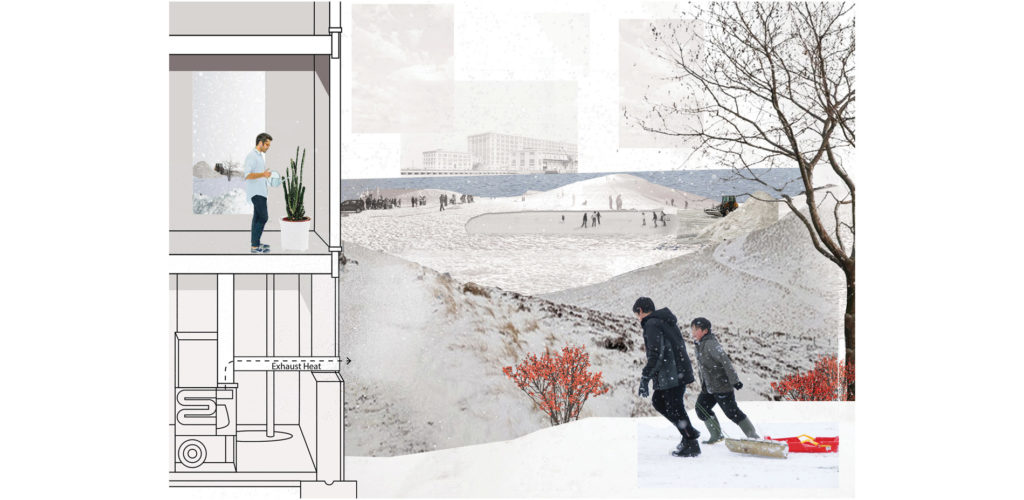
Sunmee Lee (MLA ’19) and Phia Sennett (MLA ’19) received a Student Honor Award in the Residential Design Category for their project “The Snow [RESERVE]: Dynamic Microclimate Strategies for South Boston Living.” The project proposes a harbor-side residential community for South Boston’s Reserve Channel that adapts and responds to increasing extreme weather conditions in the region. Lee and Sennett conceived the project for Landscape Architecture Core III, advised by Craig Douglas.
“The neighborhood is shared with Boston Public Works and is designed to support urban snowmelt and a dynamic landscape that generates a sense of community, a source of income and a service to the city of Boston,” states the project description. Through innovative design approaches, such as microclimates formed by interaction between residential buildings and landscape elements and strategic use of shadows, the proposal integrates snow into the neighborhood’s urban fabric while finding a more sustainable path for its disposal. The design was informed by snow statistics and routes obtained from the City of Boston. Learn more on the ASLA project page.
Learn about last year’s ASLA Student Award winners for the project “Micro-Infrastructure as Community Preservation: Kampung Baru.”
